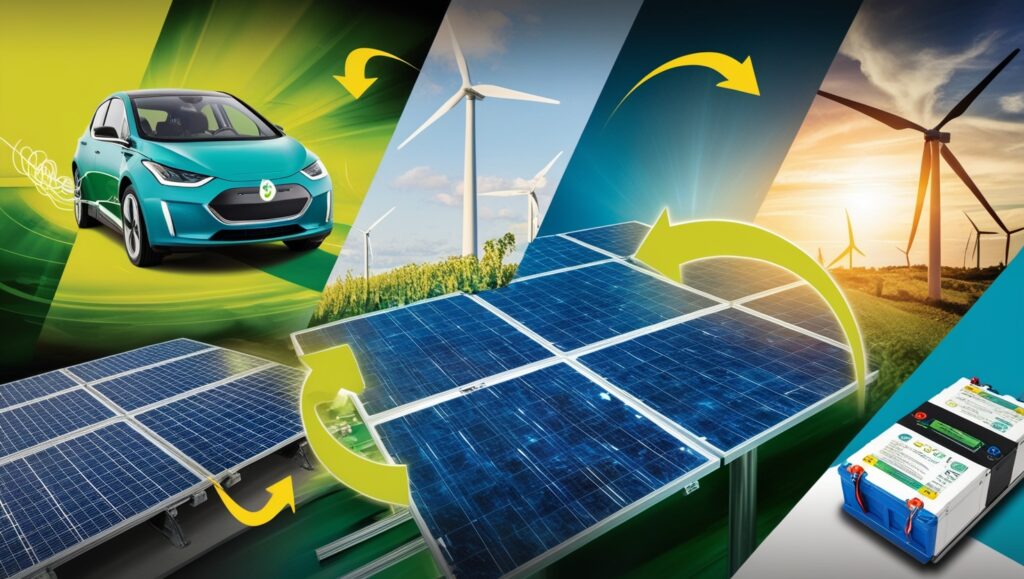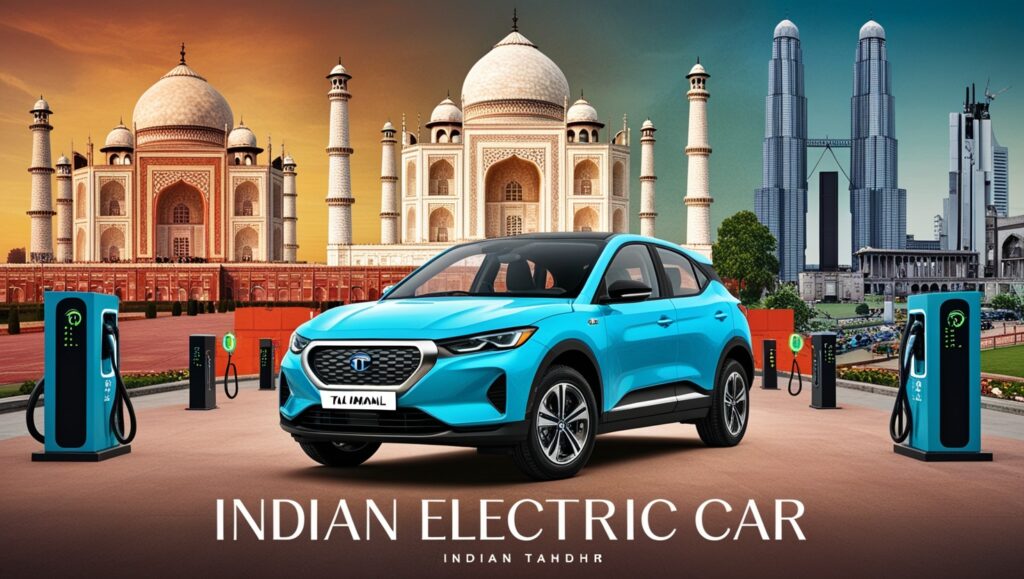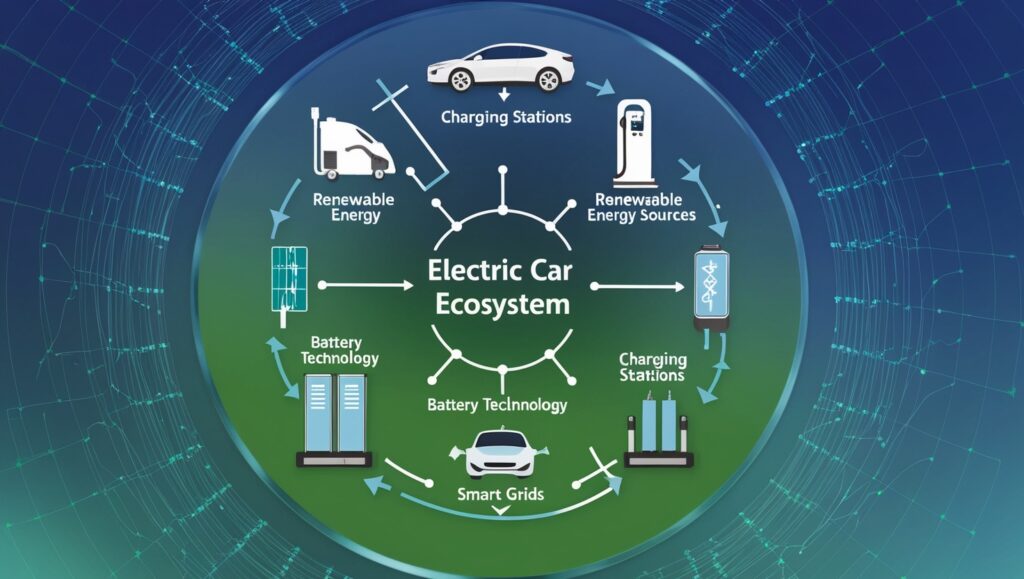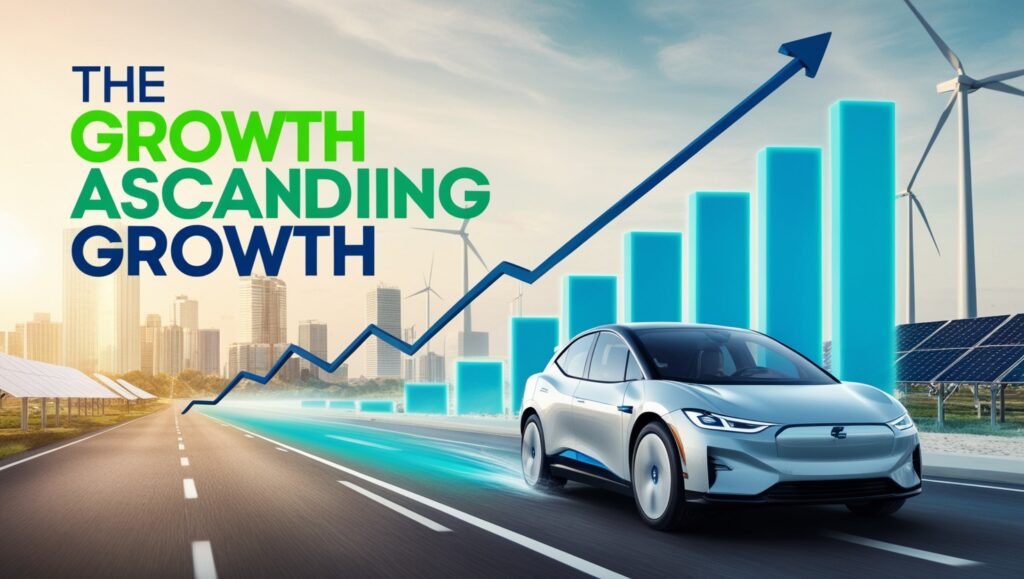The top electric cars industry is experiencing unprecedented growth, driven by a confluence of factors including environmental concerns, rising fuel prices, and technological advancements. A recent study projects a robust 18.6% CAGR for the Indian electric car market, propelling it to a staggering $14.2 billion by 2034. This surge is poised to transform the automotive landscape and redefine urban mobility.
The Driving Forces Behind the EV Boom

Several key factors are contributing to the exponential growth of the electric car market:
Government Incentives: Budget 2024 and the FAME III scheme have significantly boosted the adoption of electric vehicles in India. Subsidies, tax benefits, and infrastructure development have played a pivotal role in encouraging consumers to make the switch.
Increasing Fuel Prices: The relentless rise in fuel costs has made electric cars an economically viable option for many. With the potential for substantial savings on fuel expenses, EVs are becoming an increasingly attractive proposition for cost-conscious consumers.
Environmental Consciousness: Growing concerns about air pollution and climate change have fostered a heightened awareness of sustainable transportation. Electric cars, with their zero tailpipe emissions, are seen as a crucial step towards a greener future.
Technological Advancements: Top Electric Vehicles are now equipped with cutting-edge technologies, including longer driving ranges, faster charging times, and advanced safety features. These advancements have addressed many of the initial concerns associated with electric cars, making them more appealing to a wider audience.
Improved Charging Infrastructure: The expansion of charging networks is a critical factor in driving EV adoption. With a growing number of public charging stations, range anxiety is gradually diminishing, making electric cars a more practical choice for daily commutes and long-distance travel.
The Road Ahead: Challenges and Opportunities

While the outlook for the electric car market is promising, several challenges need to be addressed to sustain its growth trajectory:
Battery Costs: Best Electric Cars are still relatively expensive compared to their gasoline counterparts, primarily due to the high cost of batteries. Reducing battery costs through technological advancements and economies of scale is essential for making EVs more affordable.
Charging Infrastructure: While progress has been made, the expansion of charging infrastructure needs to keep pace with the growing number of electric cars. A robust and reliable charging network is crucial for building consumer confidence.
Supply Chain Constraints: The global semiconductor shortage and disruptions in the supply chain of critical EV components have impacted production and delivery timelines. Addressing these challenges is vital for ensuring a smooth transition to electric mobility.
The Impact on the Indian Automotive Industry
The rapid growth of the electric car market presents a significant opportunity for the Indian automotive industry. Domestic manufacturers are investing heavily in research and development to develop competitive electric vehicle models. This shift towards electric mobility is expected to create new jobs, boost the economy, and strengthen India’s position as a global leader in sustainable transportation.
Top Electric Vehicles Brands like Tata Motors, Mahindra, and Hyundai have already made significant strides in the electric car segment. Best Electric SUV models and other vehicle categories are gaining traction, indicating a growing consumer preference for electric options.
Exploring the Electric Vehicle Landscape

As the electric car market continues to evolve, staying informed about the latest trends and developments is crucial. Electric Vehicle Today cars blog and other industry publications provide valuable insights into the latest news, reviews, and analysis. Top Electric Vehicles reviews and comparisons can help consumers make informed decisions when choosing an electric car.
The Electric Car Ecosystem: Beyond the Vehicle
The rise of electric cars is not just about the vehicles themselves; it’s about creating a comprehensive ecosystem that supports their widespread adoption. This ecosystem encompasses several key components:
Charging Infrastructure
A robust charging infrastructure is essential for the successful deployment of electric vehicles. This includes both public charging stations and home charging solutions. Best Electric cars Charging Blog 2024 often discusses the latest developments in charging technology, such as fast charging, wireless charging, and vehicle-to-grid (V2G) capabilities.
India has made significant strides in expanding its charging network, with major cities witnessing a growing number of public charging stations. However, there is still a need for further investment and policy support to ensure adequate charging infrastructure across the country.
Battery Technology
Battery technology is a critical determinant of electric car performance, range, and cost. Research and development efforts are focused on improving battery energy density, reducing charging time, and enhancing battery life. Solid-state batteries, which promise higher energy density and faster charging, are a potential game-changer for the electric car industry.
Grid Integration
Integrating electric vehicles into the power grid can offer significant benefits, such as load balancing, frequency regulation, and grid stability. V2G technology enables electric cars to store energy during off-peak hours and discharge it back to the grid when demand is high. This can help alleviate grid congestion and reduce the need for new power plants.
Policy and Regulations
Government policies and regulations play a crucial role in shaping the electric car market. Incentives such as subsidies, tax breaks, and purchase benefits can accelerate EV adoption. Additionally, stringent emission standards and regulations can create a favorable environment for electric vehicles.
Consumer Education and Awareness
Creating awareness about the benefits of electric cars and dispelling common misconceptions is essential for driving consumer demand. Education programs can help consumers understand the total cost of ownership, charging infrastructure availability, and the environmental impact of electric vehicles.
The Role of Startups and Innovation
Startups are playing a vital role in driving innovation in the electric car ecosystem. From battery technology and charging solutions to connected car services and autonomous driving, startups are bringing fresh ideas and disruptive technologies to the market.
Case Studies: Successful Electric Car Initiatives

Several countries have implemented successful policies and programs to promote electric vehicle adoption:
Norway: Norway has emerged as a global leader in electric car adoption, thanks to a combination of tax incentives, charging infrastructure development, and early mover advantages.
China: China has invested heavily in electric vehicle manufacturing and infrastructure, leading to rapid growth in the domestic market and establishing itself as a global EV powerhouse.
India: The Indian government’s focus on electric mobility through initiatives like FAME III is driving significant growth in the EV market.
The Future of Electric Cars
The electric car industry is poised for continued growth and transformation. As battery technology advances, costs decline, and charging infrastructure expands, electric cars are set to become the mainstream choice for consumers. The integration of electric vehicles with renewable energy sources will further accelerate the transition to a sustainable transportation system.
The convergence of artificial intelligence, autonomous driving, and connectivity will create new opportunities for electric cars. Autonomous electric vehicles have the potential to revolutionize urban mobility, reduce traffic congestion, and improve road safety.
While challenges remain, the long-term outlook for the electric car market is optimistic. With continued investment, innovation, and supportive policies, electric cars are on track to become the dominant force in the automotive industry.
